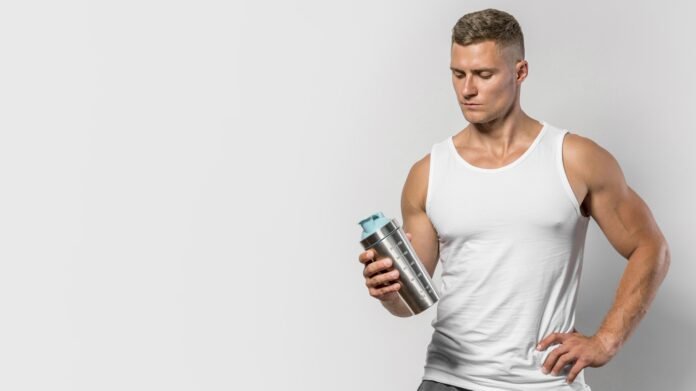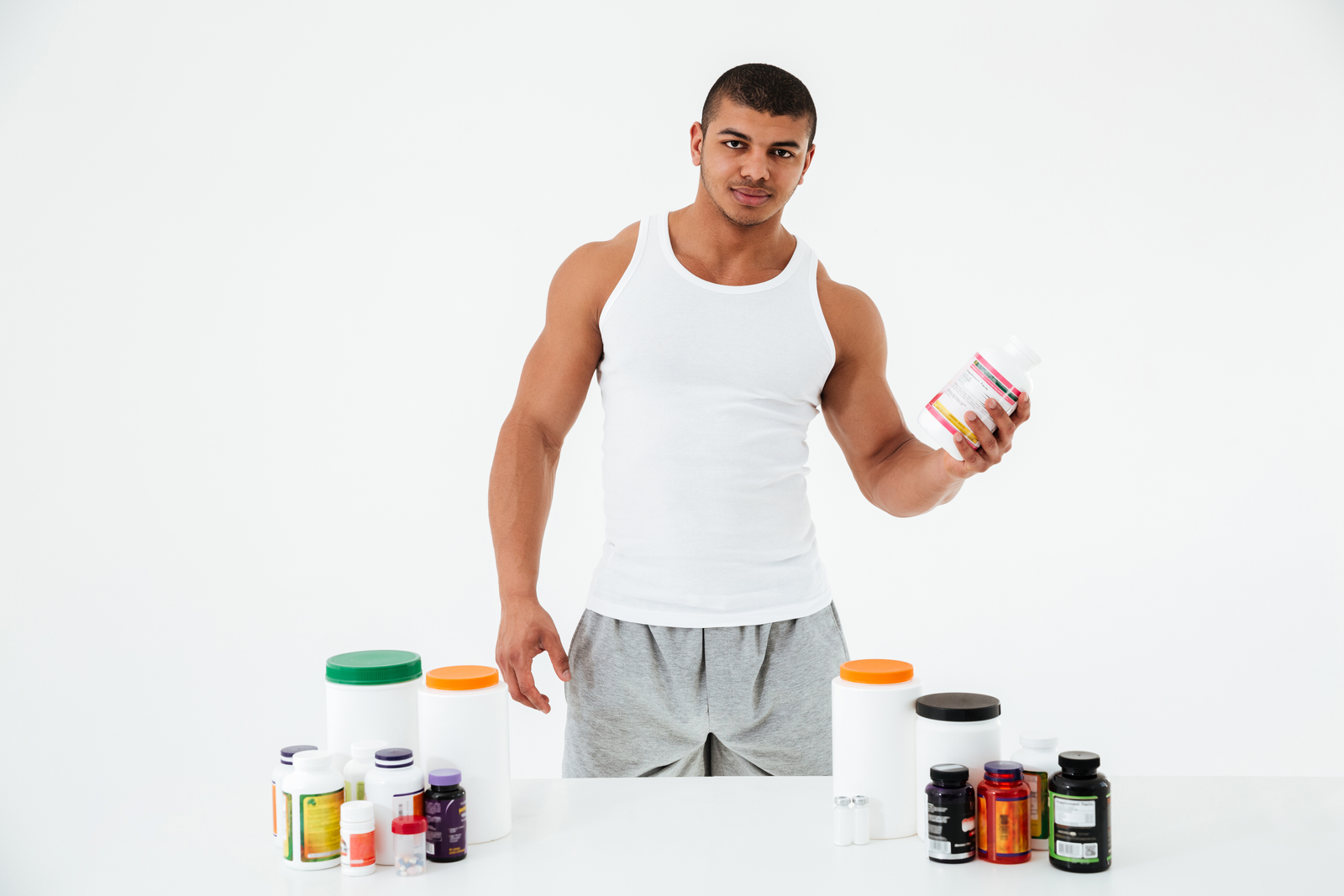Nowadays, multivitamins are being used for the recovery and growth of muscles all over the world.
Although vitamins are used in minor amounts, they can’t be ignored as they play a very crucial role in building muscles.
Vitamins for muscle recovery
Specifications:
- 1: Rebuilding and repairing musscle tissues
- 2: Synthesis of new cells and tissues
- 3: Energy production
Although vitamins are used in minor amounts, they can’t be ignored as they play a very crucial role in building muscles.
Why do muscle soreness happen?
Occasionally, muscle soreness occurs if you use your body in a new way, such as increasing the intensity of your work or playing a new sport.
Eccentric contractions, during which your muscles lengthen while under tension, can also lead to soreness. This happens when the hard work of forces is done.
Muscle soreness:
Delayed onset muscle soreness (DOMS) is believed to be caused by microdamage to muscle fibers and inflammation. This soreness usually peaks 2 days after the workout session.
DOMS is a situation in which muscles come to a new stage, which is not normal and is painful.
Vitamins for recovery:
Vitamins can typically be found in a balanced diet and in the food we take daily, like vegetables, fruits, eggs, dairy products, and sunlight, or can also be taken as supplements from outside.
Some of the main vitamins which are needed for muscle growth and recovery are given below:
Vitamin A:
Vitamin A plays a vital role in providing more structural strength to muscles by promoting bone development and stimulating young cells to mature quickly.
Vitamin A for the growth of muscle works like these processes
Protein Synthesis:
Vitamin A promotes the synthesis of proteins, essential for repairing and rebuilding muscle tissues damaged during exercise or any hard work.
Immune Function:
Vitamin A boosts the immune system of human beings, helping the body fight off infections and illnesses.
A robust immune system contributes to overall health, allowing the body to focus on muscle recovery.
Anti-Inflammatory:
Vitamin A possesses anti-inflammatory properties as it is the best vitamin for teenager’s growth, helping to reduce muscle inflammation after intense workouts. This can alleviate soreness and speed up the recovery process.
Cell Differentiation:
Vitamin A is crucial for cell differentiation as it is a growth vitamin for teenagers, ensuring that newly formed cells specialize into muscle cells, contributing to the regeneration of healthy muscle tissue.
Vitamin C:
Vitamin C is mainly found in vegetables and fruits. Vitamin C is one of the most accessible vitamins to get enough of through your diet.
Some foods highest in vitamin C are citrus fruits, red and yellow bell peppers, dark leafy greens, kiwi, broccoli, berries, tomatoes, mango, and papaya.
Vitamin C is a vitamin for muscle recovery that helps your body make collagen, which helps maintain the integrity of your bones, muscles, skin, and tendons. Vitamin C is also essential for wound healing of different injuries.
Antioxidant:
Vitamin C has antioxidant and anti-inflammatory properties, which may help speed up your recovery by preventing excessive levels of inflammation.
People who can’t consume enough vitamin C-rich foods may want to consider taking supplements. There are many vitamin C supplements available on the market.
Vitamin B3:
Vitamin B3 can also be known as niacin, which mainly gives fats to the human body; therefore, muscles also grow with time.
LDL to HDL conversion:
Vitamin B3 supports muscle-building efforts by cleaning up your cholesterol ratio. It is used in promoting “good” HDL numbers while reducing “bad” LDL levels and supporting the production of necessary hormones.
Vitamin B3 can be gained from animal foods like meat, fish, and eggs and plant foods like seeds.
Vitamin B9:
Vitamin B9 is also known as folate or folic acid. It is found in dark leafy greens, beef liver, and oranges. It is the growth vitamin for teenagers, and it is used for two primary purposes:
Boost energy:
Vitamin B9 is crucial as it gives teenagers energy and boosts that energy to a higher level by allowing them to eat rich foods with this vitamin.
By taking an adequate B9 vitamin, people can have more energy to work and concentrate without the soreness of any muscle parts.
Muscle tissue repair:
Vitamin B9 is used for repairing muscle tissues and improving muscle by each part of the muscle repairment. In this way, sore muscles are also fixed and work more efficiently.
Vitamin B12:
Milk and milk products are good sources of vitamin B12. Many ready-to-eat breakfast cereals are fortified with vitamin B12. Fish, red meat, Poultry, and eggs are excellent sources of vitamin B12.
Increase RBCs:
Vitamin B12 increases red blood cells as an increase of oxygen. If more red blood cells exist, the injury will not affect muscles more than the average level.
Delivers oxygen:
Oxygen is an integral part of the human body. This vitamin is used to deliver oxygen to muscles and the body so that there should be more oxygen for proper functioning.
Muscle repair:
It mainly works with folate to repair muscles and make muscles able to work more.
Vitamins for muscle recovery
Specifications:
- 1: Rebuilding and repairing musscle tissues
- 2: Synthesis of new cells and tissues
- 3: Energy production
Although vitamins are used in minor amounts, they can’t be ignored as they play a very crucial role in building muscles.
Vitamin D:
Vitamin D is mainly obtained by sunlight, which we soak through our skin to get. We can also get it with cheese, yogurt, beef liver, soy milk, and mushrooms.
Its deficiency occurs during winter due to low sunlight; therefore, it is recommended.
Muscle protein synthesis:
It is used for energy production, calcium absorption, and muscle protein synthesis to help muscles function for hard work.
Vitamin E:
Vitamin E is naturally found in nuts, seeds, spinach, avocado, and fish. It is mainly used for the growth of teenagers.
Removing toxins:
It removes toxins and cellular waste from the body for cleansing the body.
Slowing down aging:
Vitamin E is used to slow aging and make you feel proud to be young.
Skin tightening:
Vitamin E is used to tighten the skin. In this way, muscles are also drawn to work more, enabling power for the hard work.
If you want to learn more about muscle tightening then you must learn from this blog:



